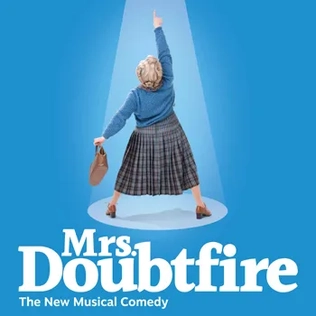My autistic daughter has mentioned a Netflix show called “The Extraordinary Attorney Woo” a few times this year, and we finally got to watching the show today. I didn’t want to like it at first because it seemed to fall into the stereotypical savant portrayal of autistic individuals in the media. Hollywood’s infatuation with the polar opposites of those with autism doesn’t do neurodiversity any favors. What about all the people who are autistic but not genius? Savants make up less than 1% of the autistic population. So, if the fascination is with the genius that comes with the oddity—autism, then how are autistic people without the genius supposed to feel about themselves? Frankly, I was afraid the show would be another typecasting ideal that my daughter wouldn’t be able to meet.
A dull pain crept up in me a few minutes into the first episode when Woo’s father received her diagnosis. The memories that triggered. Why would I want to watch a show about people with autism? I live that life full-time already! The weird, curious glances from strangers, the ache of not having sufficient support, the frequent ostracization, the helplessness, and even the tremendous effort I made to get my daughter through escalators, revolving doors and loud crowds for most of her childhood and a large chunk of my adulthood. But my daughter was entranced, so I accompanied her. Slowly, I gave the show more credit for their accurate portrayal of life with autism—the tactile and auditory sensitivity, echolalia, and even the way Woo walks match my daughter!
So much of Woo’s challenges could have been overcome or at least mitigated with early intervention using a combination of ABA behavior therapy, occupational therapy, counseling and physical therapy, but these services are almost nonexistent in Asia (actually most regions). My daughter received all of the above in ample amounts only after I exhausted all psychoeducational resources in Taiwan and moved to the US to give her the best chance at success, at living a productive, independent life. I even started a nonprofit to bring behavior therapy and other evidence-based emotional wellness practices to families worldwide, so that families wouldn’t have to go through my pain. Healthy, functioning families are the foundation of prosperous, peaceful societies.
The stress and isolation that special needs families bear cannot be overestimated. Nobody, despite their best intentions, will include you for long because it’s just too messy, too much trouble, and too time-consuming to include your autistic child. Even though those who are compassionate and help usually fall wayward because it’s exhausting, and change is slow. Autism isn’t a disease where people can cheer you on for a few months and then celebrate your full recovery. It is a lifelong neurological processing disorder, and it’s exhausting. In fact, a big percentage of caretakers and siblings of autistic individuals suffer from PTSD. It takes a lot of education of the caregivers, and support from schools, family members, governments, and corporations.
For almost ten years, I didn’t go anywhere (even inside my house) without a big purse filled with her visual schedule, first/then chart, token reward chart, fidgets, earplugs, and extra changes of under clothes. Applied Behavior Analysis (ABA) is the gold standard of treatment for autism. It allows autistic kids to learn social skills, coping strategies, perspective-taking, self-regulation, and advocacy—skills they will need to navigate life with their autism. Unfortunately, ABA behavior therapy is rarely available outside the US, and demand far outstrips supply in the US. Hopefully, Netflix, my nonprofit curaJOY and all the other friends of neurodiversity will raise not only awareness but move on to making concrete help like behavior therapy accessible to the entire world.
Back to my daughter, she was beyond overjoyed from watching the show—just seeing someone who also flaps their arms oddly, and repeats sentences mechanically—just seeing someone who is like her and yet able to live a productive, purposeful life. She couldn’t stop walking about “The Extraordinary Attorney Woo” for the rest of the day and wrote a long diary entry about it before I wrapped up my night with my own version here. Representation does make a difference. It gives people a spark of courage to stand up for themselves. We all long to belong, and the world is an alien place to too many of us—whether is the autistic kid who mutters to herself and lines up her food, the only Korean (or insert any minority ethnicity) in your school, foster kids who feel unwanted, bouncing from one place to another. Tolerate and embrace differences. Then go a step further, and do something to level the playing field. You might be the spark of courage that jumpstarts someone’s life.





Leave a Reply